What is Lemon Balm?
Lemon balm is a perennial herb from the mint family. The leaves, which have a mild lemon aroma, are used to make medicine. Lemon balm is used alone or as part of various multi-herb combination products.
Lemon balm is taken by mouth for digestive problems, including upset stomach, bloating, intestinal gas (flatulence), vomiting, and colic It is also used for pain, including menstrual cramps, headache and toothache. Lemon balm is also used for mental disorders, including hysteria, melancholia, attention deficit-hyperactivity disorder (ADHD), and Alzheimer’s disease.
Many people believe lemon balm has calming effects so they take it for anxiety, stress, sleep problems, and restlessness. Lemon balm is also used for an autoimmune disease involving the thyroid (Graves’ disease), swollen airways, rapid heartbeat due to nervousness, high blood pressure, cramps, sores, tumors, and insect bites.
Top 5 Health Benefits of Lemon Balm
1. Anxiety
Lemon balm may be used to help reduce anxiety, according to a small study published in the journal Nutrients.
According to researchers in Australia, a sweetened water-based drink containing 0.3 grams of lemon balm extract significantly reduced stress and improved mood in a group of healthy young adults compared to a placebo.
These results were confirmed by repeating the test with yogurt instead of water. The anxiolytic (anxiety-reducing) effects were generally felt in one to three hours.
Studies have suggested that rosmarinic acid (which is found in lemon balm) increases the availability of neurotransmitters in the brain known as gamma-aminobutyric acid (GABA). Low levels of GABA in the brain is believed to be associated with anxiety and other mood disorders.
2. Insomnia
The same influence that rosmarinic acid has anxiety is believed to improve sleep in people with insomnia.
According to a 2013 study in Complementary Therapies in Clinical Practice, lemon balm combined with valerian root significantly improve sleep quality in 100 women with menopause when compared to a placebo.
Insomnia and sleep apnea, often accompanied by depression and anxiety, are common features of menopause. The combination of herbs is believed to aid in sleep by acting directly on GABA receptors in the brain, delivering a mild sedative effect while stimulating the production of the “feel-good” hormone serotonin.
3. Cold Sores
Rosmarinic acid had potent antiviral properties that may aid in the treatment of certain viral infections. Most of the current evidence is limited to test tube studies in which rosmarinic acid appears to inhibit a broad range of common viruses, including adenoviruses (associated with the common cold) and hepatitis B virus.
Of these, rosmarinic acid appears most effective in inhibiting herpes simplex virus type 1 (HSV-1) associated with cold sores and some cases of genital herpes.
In a 2014 study published in Phytotherapy Reseach, lemon balm extract was able to prevent 80 to 96 percent of drug-resistant HSV-1 strains from infecting host cells.
These findings may be especially relevant to people unable to find relief from standard antiviral drugs (like acyclovir). Further research is needed to see if the same results can be achieved in humans.
4. Gastrointestinal Problems
There is growing evidence that lemon balm can help treat symptoms of dyspepsia (upset stomach), irritable bowel syndrome (IBS), and acid reflux. in addition to rosmarinic acid, lemon balm contains citral, citronellal, linalool, geraniol, and beta-caryophyllene, each of which has spasmolytic (anti-spasm) and carminative (anti-gas) properties.
A 2013 review of studies from Germany showed that Iberogas, an over-the-counter remedy containing lemon balm and eight other therapeutic herbs, was consistently more effective in treating dyspepsia and IBS than a placebo.
A 2016 animal study from Iran even went so far as to suggest that lemon balm can help prevent gastric ulcers and may be just as effective in reducing stomach acid as Zantac (ranitidine).
5. Alzheimer’s Disease
Preliminary studies have suggested that citral in lemon balm extract may inhibit cholinesterase, an enzyme targeted by the drugs Aricept (donepezil), Exelon (rivastigmine), and Razadyne (galantamine) used to treat Alzheimer’s disease. Doing so many reduce the formation of plaques in the brain associated with the progression of the disease.
An early study from Iran reported that a four-month course of lemon balm extract was moderately more effective than a placebo in improving cognition and dementia in people with mild to moderate Alzheimer’s.
The participants were each given 60 drops of lemon balm extract containing 500 micrograms of citral per milliliter (μg/ml) for a period of 16 weeks. While promising, the findings have yet to be replicated in other studies.


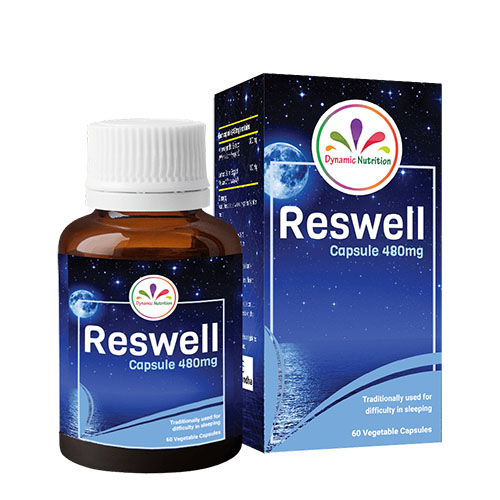

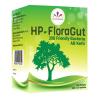


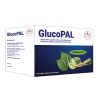
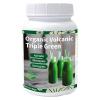

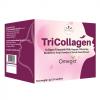
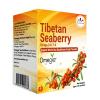
Facebook Comments